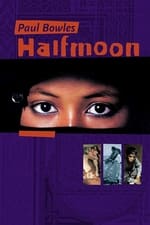Información personal
Conocido por Guion
Créditos conocidos 16
Sexo Masculino
Fecha de nacimiento 30 de diciembre de 1910
Fecha de defunción 18 de noviembre de 1999 (88 años)
Lugar de nacimiento Queens, New York, USA
También conocido como
- -
Puntuación del contenido
100
¡Sí! ¡Buena pinta!
Iniciar sesión para informar de un problema
Biografía
Paul Frederic Bowles (December 30, 1910 – November 18, 1999) was an American expatriate composer, author, and translator. He became associated with the Moroccan city of Tangier, where he settled in 1947 and lived for 52 years to the end of his life.
Following a cultured middle-class upbringing in New York City, during which he displayed a talent for music and writing, Bowles pursued his education at the University of Virginia before making several trips to Paris in the 1930s. He studied music with Aaron Copland, and in New York wrote music for theatrical productions, as well as other compositions. He achieved critical and popular success with his first novel The Sheltering Sky (1949), set in French North Africa, which he had visited in 1931.
In 1947, Bowles settled in Tangier, at that time in the Tangier International Zone, and his wife Jane Bowles followed in 1948. Except for winters spent in Ceylon during the early 1950s, Tangier was Bowles's home for the remainder of his life. He came to symbolize American immigrants in the city.
Bowles died in 1999 at the age of 88. His ashes are buried near family graves in Lakemont Cemetery, in upstate New York.
Paul Bowles was born in Jamaica, Queens, New York City, as the only child of Rena (née Winnewisser) and Claude Dietz Bowles, a dentist. His childhood was materially comfortable, but his father was a cold and domineering parent, opposed to any form of play or entertainment, and feared by both his son and wife. According to family legend, Claude had tried to kill his newborn son by leaving him exposed on a window-ledge during a snowstorm. The story may not be true, but Bowles believed it was and that it encapsulated his relationship with his father. Warmth in his childhood was provided by his mother, who read Nathaniel Hawthorne and Edgar Allan Poe to him – it was to the latter that he later attributed his own desire to write stories, such as "The Delicate Prey", "A Distant Episode", and "Pages from Cold Point".
Bowles could read at age 3 and was writing stories by age 4. Soon, he wrote surrealistic poetry and music. In 1922, at age 11, he bought his first book of poetry, Arthur Waley's A Hundred and Seventy Chinese Poems. At age 17, he had a poem, "Spire Song", accepted for publication in the literary journal transition. This Paris-based publication served as a forum for leading proponents of modernism – Djuna Barnes, James Joyce, Paul Éluard, Gertrude Stein and others. Bowles's interest in music also dated from his childhood, when his father bought a phonograph and classical records. (Bowles was interested in jazz, but such records were forbidden by his father.) His family bought a piano, and the young Bowles studied musical theory, singing, and piano. When he was 15, he attended a performance of Stravinsky's The Firebird at Carnegie Hall, which made a profound impression: "Hearing The Firebird made me determined to continue improvising on the piano when my father was out of the house, and to notate my own music with an increasing degree of knowing that I had happened upon a new and exciting mode of expression." ...
Source: Article "Paul Bowles" from Wikipedia in English, licensed under CC-BY-SA 3.0.
Paul Frederic Bowles (December 30, 1910 – November 18, 1999) was an American expatriate composer, author, and translator. He became associated with the Moroccan city of Tangier, where he settled in 1947 and lived for 52 years to the end of his life.
Following a cultured middle-class upbringing in New York City, during which he displayed a talent for music and writing, Bowles pursued his education at the University of Virginia before making several trips to Paris in the 1930s. He studied music with Aaron Copland, and in New York wrote music for theatrical productions, as well as other compositions. He achieved critical and popular success with his first novel The Sheltering Sky (1949), set in French North Africa, which he had visited in 1931.
In 1947, Bowles settled in Tangier, at that time in the Tangier International Zone, and his wife Jane Bowles followed in 1948. Except for winters spent in Ceylon during the early 1950s, Tangier was Bowles's home for the remainder of his life. He came to symbolize American immigrants in the city.
Bowles died in 1999 at the age of 88. His ashes are buried near family graves in Lakemont Cemetery, in upstate New York.
Paul Bowles was born in Jamaica, Queens, New York City, as the only child of Rena (née Winnewisser) and Claude Dietz Bowles, a dentist. His childhood was materially comfortable, but his father was a cold and domineering parent, opposed to any form of play or entertainment, and feared by both his son and wife. According to family legend, Claude had tried to kill his newborn son by leaving him exposed on a window-ledge during a snowstorm. The story may not be true, but Bowles believed it was and that it encapsulated his relationship with his father. Warmth in his childhood was provided by his mother, who read Nathaniel Hawthorne and Edgar Allan Poe to him – it was to the latter that he later attributed his own desire to write stories, such as "The Delicate Prey", "A Distant Episode", and "Pages from Cold Point".
Bowles could read at age 3 and was writing stories by age 4. Soon, he wrote surrealistic poetry and music. In 1922, at age 11, he bought his first book of poetry, Arthur Waley's A Hundred and Seventy Chinese Poems. At age 17, he had a poem, "Spire Song", accepted for publication in the literary journal transition. This Paris-based publication served as a forum for leading proponents of modernism – Djuna Barnes, James Joyce, Paul Éluard, Gertrude Stein and others. Bowles's interest in music also dated from his childhood, when his father bought a phonograph and classical records. (Bowles was interested in jazz, but such records were forbidden by his father.) His family bought a piano, and the young Bowles studied musical theory, singing, and piano. When he was 15, he attended a performance of Stravinsky's The Firebird at Carnegie Hall, which made a profound impression: "Hearing The Firebird made me determined to continue improvising on the piano when my father was out of the house, and to notate my own music with an increasing degree of knowing that I had happened upon a new and exciting mode of expression." ...
Source: Article "Paul Bowles" from Wikipedia in English, licensed under CC-BY-SA 3.0.
Conocido por
Guion
|
|||
|
|||
|
|||
|
|||
|
Interpretación
|
|||
|
|||
|
|||
|
|||
|
|||
|
|||
|
|||
|
|||
|
|||
|
Sonido
|
|||
|
|||
|





